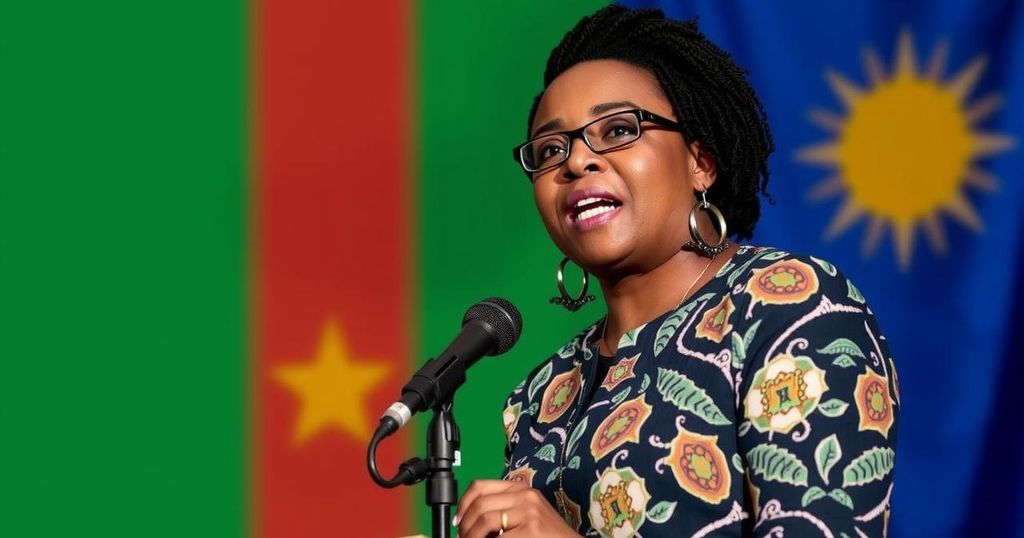Namibia Prepares for Pivotal Presidential Election as First Female Candidate Emerges
Namibia is set to vote in a presidential election on November 27, 2024, with Netumbo Nandi-Ndaitwah as a strong candidate to potentially become the nation’s first female leader. SWAPO, the ruling party, faces growing public dissatisfaction due to economic struggles, particularly among young citizens. The election comes against a backdrop of recent electoral upsets in the region, suggesting a pivotal moment for Namibia’s political landscape.
Namibia is poised for a pivotal presidential election as it votes on November 27, 2024, potentially ushering in its first female leader. Netumbo Nandi-Ndaitwah, the current vice president and candidate of the ruling South West Africa People’s Organization (SWAPO), stands as a strong contender following her significant lead in early voting results. Despite her historic candidacy, SWAPO faces mounting dissatisfaction from the electorate due to economic hardships and high unemployment, particularly among youth.
The election context is marked by a broader regional trend of electoral upsets witnessed in neighboring countries, where long-standing ruling parties, including South Africa’s African National Congress and Botswana’s ruling party, recently experienced substantial defeats. With approximately 1.4 million Namibians registered to vote, this election is critical to reshaping the political landscape and could signal a shift away from SWAPO’s long-standing dominance since Namibia’s independence from South Africa in 1990.
Nandi-Ndaitwah, who garnered part of her education in the Soviet Union, has pledged significant investments towards job creation, promising to allocate around 85 billion Namibian dollars (approximately $4.7 billion) to tackle the alarming unemployment rate among the youth. However, critics have challenged the realism of her ambitious targets. The election may also highlight pressing issues such as reproductive rights and equal pay for women, as voters consider the future leadership and direction of their country under her potential administration. In total, fourteen candidates are competing for the presidency, including Nandi-Ndaitwah and notable challenger Panduleni Itula. Should no candidate secure over 50% of the votes, a runoff election will ensue.
Namibia, located on the southwestern coast of Africa, gained independence from apartheid South Africa in 1990. Since then, the South West Africa People’s Organization (SWAPO) has maintained a firm grip on the political landscape, having held the presidency for 34 years. With its ongoing governance, however, the party faces increasing discontent from the populace over economic challenges, particularly high unemployment rates among the youth. This election also represents a historical moment, as Netumbo Nandi-Ndaitwah could become the nation’s first female president, reflecting a significant potential for political change not only in Namibia but in the broader African context. The struggle for women’s rights and issues related to economic opportunities are taking center stage as voters approach the polls.
In summary, Namibia’s upcoming presidential election is not merely a procedural event; it represents a critical juncture for the nation. With Netumbo Nandi-Ndaitwah as a frontrunner, the election is significant for women’s representation in African leadership roles. The widespread dissatisfaction with economic conditions may lead to a potential power shift, allowing for a re-evaluation of policies that have long defined SWAPO’s governance. As Namibians prepare to cast their votes, the outcome could have far-reaching implications for the country’s future.
Original Source: apnews.com




Post Comment